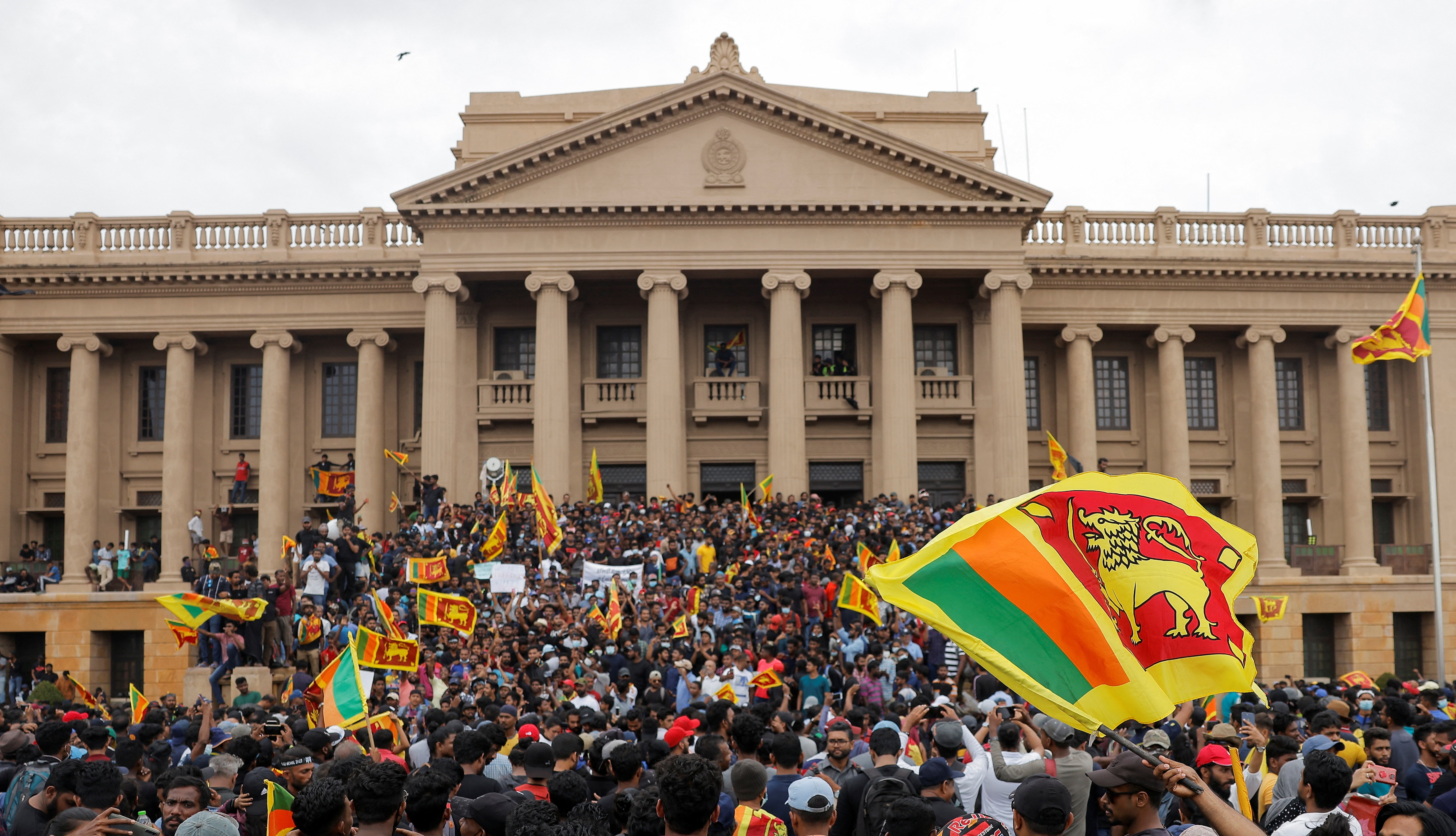
Following public anger over the economic crisis in Sri Lanka, the president and prime minister of the island nation resign.
Sri Lanka: PM and President resign
On Saturday, Sri Lanka’s President Gotabaya Rajapaksa and PM Wickremesinghe agreed to resign following public protests and anger. Wickremesinghe took office in May and late last month stated that the nation’s debt-burdened economy had collapsed. He stated it was heading for “rock bottom”. The months-long anti-government demonstrations took a theatrical turn on July 9 when the police were unsuccessful in holding back masses of protesters who swarmed and occupied the official residences of the President and the PM. They were successful in setting fire to the PM’s private home.
The country was short of cash to pay for imports of necessities such as medicine and fuel and was defaulting on its debt. So far, Sri Lanka has been getting help from the International Monetary Fund (IMF) in addition to India and China. People in the nation are skipping meals and enduring shortages as they line up for hours to buy fuel. The situation is a harsh reality for a nation whose economy was growing quickly with a comfortable and growing number of people in the middle class until the crisis drilled deeper. With their resignations, they are making way for an all-party government tasked with restoring the order, negotiating a debt restructuring, and progressing talks with the IMF for financial relief.
How serious is Sri Lanka’s economic crisis?
The Sri Lankan government owes about $51 billion and is unable to make the interest payments at the least. The pandemic and terror attacks of 2019 made a huge dent in the economy mainly fuelled by tourism. Political corruption also aided in complicating the situation. The currency collapsed by over 80 percent, making imports more expensive and aggravating the already out-of-control inflation. Additionally, it increased food costs by 57 percent.
Sri Lankans are not lacking food but, people are going hungry. According to the UN World Food Program, nearly nine out of every 10 families are skipping or stretching meals. The IMF stated that it is nearing a staff-level agreement with Sri Lanka, following a working visit last month. However, the executive board’s approval and the disbursement of funds need Sri Lanka to show that it can restore the economy and debt levels to a tolerable footing. They will also help prove the nation with credibility as it is seeking to bring Sri Lanka’s creditors to negotiate. The IMF has the largest slice of debt adding up to $35 billion. Other major lenders are China, Japan, and India.
